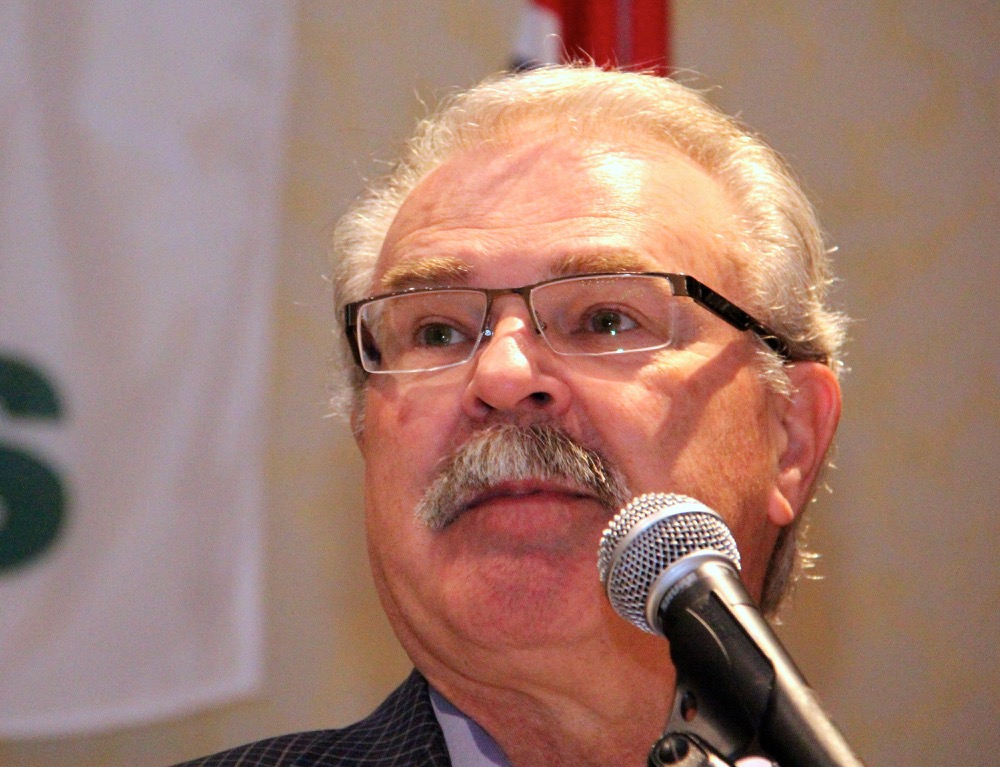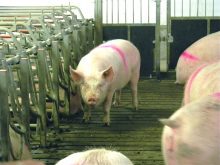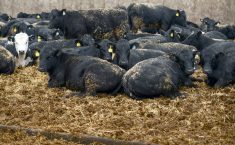Agriculture Minister Gerry Ritz is warning Canada will play hardball with American politicians who block legislation to scrap the U.S. country-of-origin labelling (COOL) program on beef and pork imports.
Canada formally asked the World Trade Organization June 4 to approve slightly more than $3 billion a year in retaliatory tariffs on American food and consumer products. It hopes to be able to impose the tariffs by late summer.
Several senators are balking at legislation in the House of Representatives to repeal COOL.
“Canada will retaliate against products from their states,” Ritz said, speaking from Washington. He said hopefully that will deliver the message that Canada will only be satisfied with the elimination of COOL, not some watered-down version of it.
Read Also

Pig transport stress costs pork sector
Popular livestock trailer designs also increase pig stress during transportation, hitting at meat quality, animal welfare and farm profit, Agriculture and Agri-Food Canada researcher says
Ritz was in the American capital for two days of meetings with politicians and American farm and business leaders opposed to COOL. He said Mexico will seek close to $1 billion (US$653 million) worth of retaliatory tariffs on American imports.
“The WTO has ruled that the United States is out of options and out of time,” he said. “The only way for the United States to avoid billions in immediate retaliation is to repeal COOL.”
- From the Canadian Cattlemen: U.S. House of Representatives votes to scrap COOL
The United States sees the annual values as “substantially inflated” and would seek WTO arbitration at the appropriate time, a spokesman for the U.S. Trade Representative said.
Mexico and Canada are therefore seeking an extraordinary session of the WTO’s dispute settlement body on June 17 to authorize the punitive measures. Ottawa is likely to target beef, pork, California wines, mattresses, cherries and office furniture, officials said.
Last month, the WTO made its fourth and final ruling in the COOL dispute which dates back to 2008. The agriculture committees of the Senate and House of Representatives have begun work on measures to repeal COOL.
Ritz said he “was buoyed by what he saw in Congress.”
But Canada has made it clear the U.S. must respect international trade rules it helped create. “The time has come to put an end to COOL and the U.S. knows it.”
Since the implementation of COOL, the Canadian livestock industry has suffered about $3 billion in lost sales and lower prices. Ritz said the senior USDA economist has acknowledged there has been no real consumer benefit from the measure.
In June 2013, Canada released a proposed list of U.S. imports targeted for retaliation and it will make a final determination on what products to target once it has received WTO approval.
In 2014, agriculture and agri-food trade between Canada and the United States was $51 billion.



















